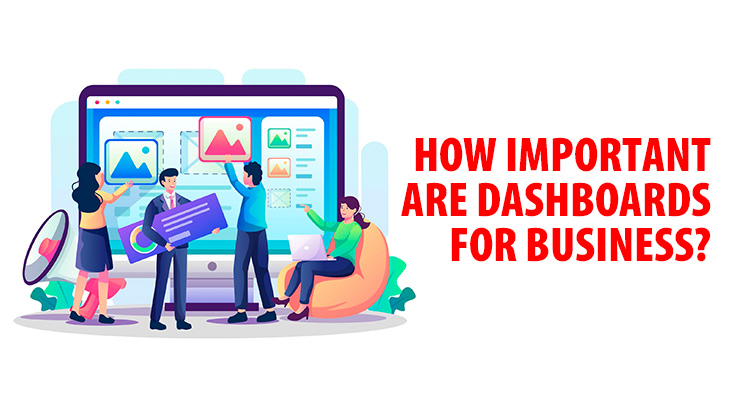How important are Dashboards for business?

Dashboards have become an essential tool for businesses of all sizes and industries. They offer a single point of access to real-time data, enabling users to track performance, identify trends, and make informed decisions quickly. In today’s fast-paced business world, the importance of dashboards cannot be overstated. In this blog post, we will explore the benefits of using dashboards and how they can help streamline business operations.
Improved Visibility
Dashboards offer a comprehensive view of the business’s performance in one place. This allows decision-makers to identify trends, monitor progress, and track performance against set goals. A well-designed dashboard presents information in a visually compelling way, making it easier to understand and act upon.
For example, imagine a marketing team that needs to monitor their online advertising campaign’s performance. With a dashboard, they can track metrics such as click-through rates, cost-per-click, and conversion rates in real-time. This allows them to adjust their strategy quickly and optimize their campaign for better results.
Better Collaboration
Dashboards offer a shared platform for all team members to view data and track progress towards shared goals. This facilitates communication and collaboration, allowing team members to identify issues and address them before they become bigger problems.
For instance, suppose a sales team is using a dashboard to track their progress towards their monthly sales targets. In that case, they can identify which sales reps are struggling to hit their targets and collaborate to provide support and training to help them improve their performance.
Enhanced Efficiency
Dashboards enable users to access critical information quickly, streamlining business operations and improving efficiency. They provide a centralized location for data and can be customized to display the most relevant information. This eliminates the need to navigate through multiple systems and applications to find the necessary information, reducing time and effort.
For example, suppose an HR department uses a dashboard to manage employee performance reviews. In that case, they can access all necessary information, such as employee data, review history, and performance metrics, in one place. This simplifies the process and eliminates the need to search through multiple systems and records, saving time and improving efficiency.
Real-Life Examples
Several businesses have experienced the benefits of using dashboards to improve their operations. For example, a manufacturing company used a dashboard to monitor their inventory levels, supplier performance, and customer demand. This allowed them to optimize their production process and reduce lead times, resulting in improved customer satisfaction and increased revenue.
Similarly, a healthcare provider used a dashboard to track patient outcomes, clinical quality measures, and financial performance. This enabled them to identify areas for improvement, such as reducing readmissions and improving patient satisfaction scores, and implement targeted interventions to address them.
Conclusion
Dashboards are essential tools for businesses that want to streamline their operations and improve decision-making. They offer a comprehensive view of the business’s performance, facilitate collaboration, and enhance efficiency. With real-time data at their fingertips, decision-makers can identify trends, track progress, and make informed decisions quickly. As such, businesses should prioritize the implementation of dashboards to remain competitive and agile in today’s fast-paced business environment.






